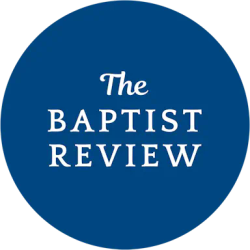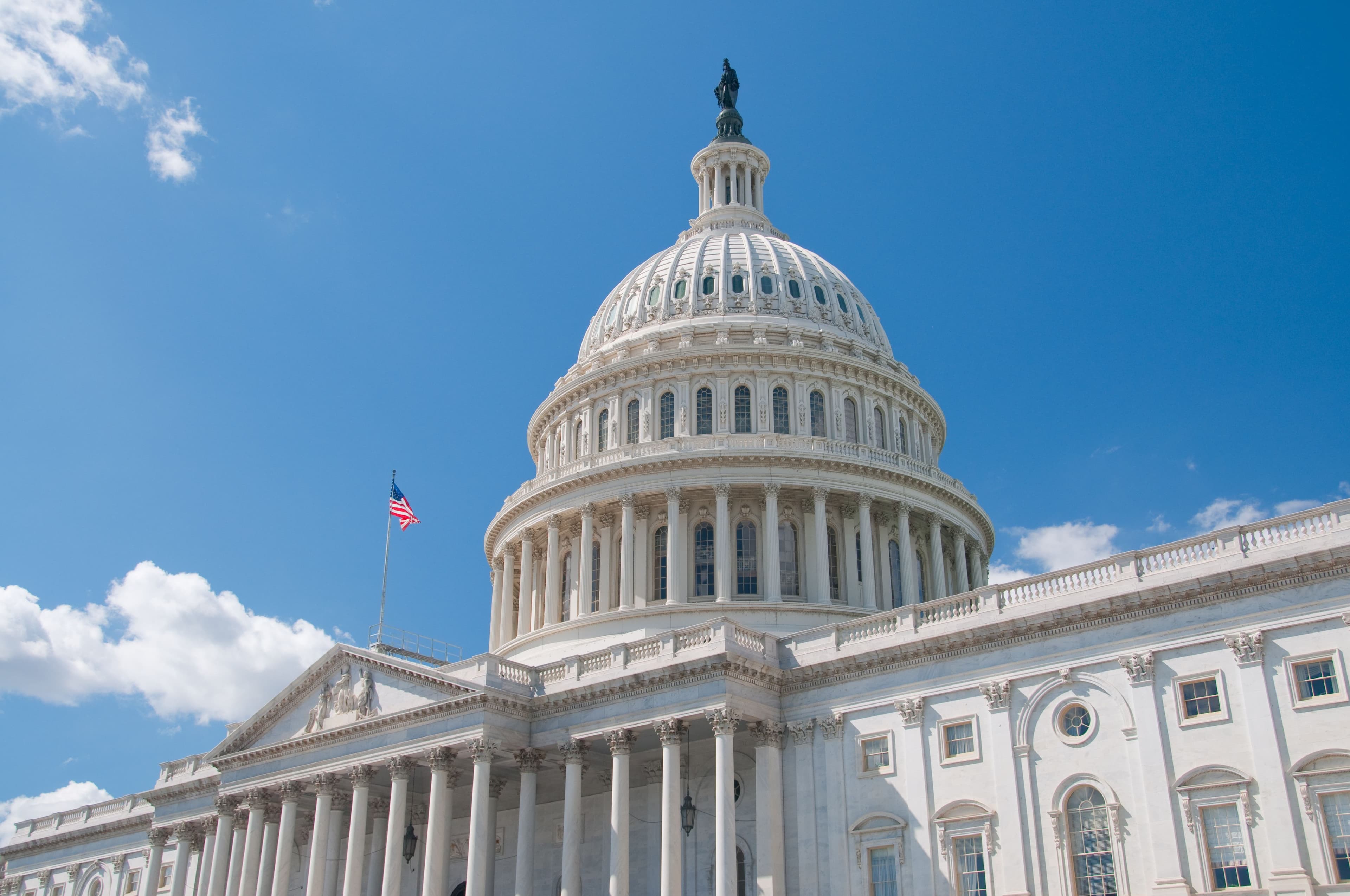The work of The Ethics & Religious Liberty Commission is essential to the work of the Southern Baptist Convention. In 1953, when J.B. Weatherspoon and Acker Calvin Miller proposed a new name for what was then called the Social Service Commission of the Southern Baptist Convention, they described the reason for the Commission’s existence, stating, “A strong and vigorous spiritual health will return to us only when we accept the full meaning of the Christian message for the total life of man.”
The gospel has “total life” implications. Southern Baptists have a unique responsibility first for deeply appreciating these implications and then faithfully advocating for them in the public square. The Commission started, Weatherspoon and Miller said, “to develop within our people an awareness of the ethical content of the gospel and the social responsibilities of the Christian life.” Southern Baptists have been speaking formally to the implications of the gospel for human flourishing for over 100 years. No other entity is better positioned than the ERLC to represent Southern Baptists’ interests and convictions nationally or to equip Southern Baptists on the implications of the gospel for the whole of the Christian life.
The ERLC is at its best when it resources and represents the churches of the Southern Baptist Convention. These twin objectives—resourcing and representing the churches—constitute the importance of the ERLC’s work.
The ERLC must have a laser-focus on resourcing the churches of the Southern Baptist Convention, serving them well as they face the moral and social challenges of our day. Part of the ERLC’s mission statement includes this directive: “to assist the churches.” The primary reason for the ERLC’s existence is to serve and resource the local churches of the Southern Baptist Convention. As important as it is to speak, write, conduct interviews, meet with Congressmen, and advocate in the public sphere on behalf of Southern Baptists, these and other responsibilities must be understood within the overarching mandate of serving and resourcing the churches.
The ERLC should provide the best possible resources to local churches as they seek to engage culture with the gospel of Jesus Christ. The ERLC only has value to the degree that it serves Southern Baptist churches well. The primary locus of the ERLC should not be Washington, D.C., but the congregations of our convention. The ERLC should be as accessible of an institution to everyday Southern Baptists as exists within the SBC.
When a pastor is facing a new civil mandate in his community that conflicts with matters of conscience, he ought to be able to call the ERLC and speak with someone who can help him think through how he should respond biblically. When a young man or woman is confused about issues of gender and sexuality and visits a church youth group meeting, the youth pastor ought to be able to turn to the ERLC for resources that will help him understand these issues and minister well to the person who is struggling with these questions of identity. When a local church is facing a court challenge, the ERLC ought to be the first organization the church turns toward in order to find help. One of the reasons the ERLC matters is because it can be the primary resource the churches turn to when thinking through issues of ethics, cultural engagement, religious liberty, and public policy.
Beyond resourcing the churches, the ERLC exists to represent the churches of the Southern Baptist Convention. The ERLC must advocate convincingly and courageously for the stated convictions of Southern Baptists, whether in the halls of Congress, in the courts, with the media, or among the churches. Every available tool must be used to advance, defend, and represent the interests of Southern Baptists in the public square.
Our purpose as Southern Baptists is the proclamation of the gospel to our friends, neighbors, and the nations. We need the ERLC to help promote and protect those priorities in Washington, D.C., and at our state government levels. Without apology, the ERLC must be able to articulate where Southern Baptists stand on the key issues of theology, ethics, and public policy.
The responsibility of speaking on behalf of Southern Baptists in this way is a weighty one. The ERLC must know when to speak and when not to speak. Historically, there has been a tension between speaking for and speaking to Southern Baptists. There are moments when the ERLC must speak to Southern Baptists in a prophetic role. However, the ERLC needs to be careful not to speak to the churches more than it speaks for the churches.
Furthermore, the ERLC must know when not to speak. As important as it is to be vocal on the issues that matter most, the Commission must also know when to practice restraint and not get ahead of the churches on key issues.
It’s no secret that there has been a good deal of controversy surrounding the ERLC in recent years. The ERLC operates within a broader Southern Baptist ecosystem. It doesn’t exist in a vacuum. Its actions, perhaps more than any other entity, have repercussions for our entire Southern Baptist family. No other entity addresses such controversial issues or speaks in such public ways. As one denominational leader once told me, if someone sneezes in Nashville, Southern Baptists in Fort Worth or Louisville or New Orleans catch a cold.
I understand at a local church level the importance of the public statements that are made by ERLC representatives on behalf of Southern Baptists. What an ERLC representative says on CNN affects the local church I pastor. The ERLC needs to be convictional and courageous but also needs the wisdom to know which battles are worth fighting.
I believe this is best achieved by speaking only on those issues about which Southern Baptists have clearly spoken via statement of faith (the Baptist Faith & Message 2000) or resolution. This is particularly important regarding issues about which well-meaning Christians have convictional differences but remain within the boundaries of our confessional positions.
To this end, I plan to make a motion at the SBC annual meeting in Dallas to amend the ministry assignment of the ERLC to limit its representation and advocacy to only those issues about which Southern Baptists have explicit consensus. If the SBC has not spoken to an issue via statement of faith or resolution, the ERLC should not advocate for it. The motion will read as follows:
I move that the messengers to this annual meeting amend Ministry Assignment #2 of The Ethics & Religious Liberty Commission in the SBC Organizational Manual to read: Represent Southern Baptists in communicating the moral and ethical positions of the Southern Baptist Convention to the public and to public officials, limiting policy advocacy to positions articulated by the convention’s most recently adopted statement of faith and resolutions adopted by the convention.
Due to the nature of the ERLC’s ministry assignment, there may always be an element of controversy associated with its existence. But the more time the ERLC spends fending off attacks from Southern Baptists the less time it can spend serving and advocating for Southern Baptists. If the ERLC is viewed suspiciously by Southern Baptists it will not be able to equip the churches effectively on the matters for which its very existence was birthed. By practicing restraint to speak only on those matters about which Southern Baptists have clearly articulated a position, the ERLC can rightly represent the interests of our churches.
Article XV of the Baptist Faith and Message 2000, entitled “The Christian and the Social Order,” states in part:
“All Christians are under obligation to seek to make the will of Christ supreme in our own lives and in human society...In the spirit of Christ, Christians should oppose racism, every form of greed, selfishness, and vice, and all forms of sexual immorality, including adultery, homosexuality, and pornography. We should work to provide for the orphaned, the needy, the abused, the aged, the helpless, and the sick. We should speak on behalf of the unborn and contend for the sanctity of all human life from conception to natural death. Every Christian should seek to bring industry, government, and society as a whole under the sway of the principles of righteousness, truth, and brotherly love. In order to promote these ends Christians should be ready to work with all men of good will in any good cause, always being careful to act in the spirit of love without compromising their loyalty to Christ and His truth.”
The Ethics & Religious Liberty Commission is the SBC’s best option for assisting the churches in accomplishing these objectives. My prayer is that in future days, Southern Baptists will once again embrace the necessity of this entity and will leverage our common voice to promote those matters that are most central to our mission.
Editor's Note: As a part of its commitment to fostering conversation within the Southern Baptist Convention, the Baptist Review may publish editorials that espouse viewpoints that are not necessarily shared by the TBR team or other contributors. We welcome submissions for responses and rebuttals to any editorials as we seek to host meaningful conversations about the present and future of our convention.


